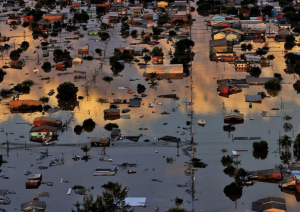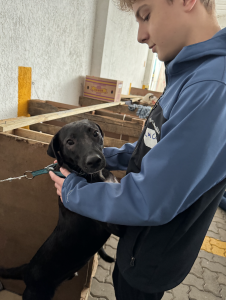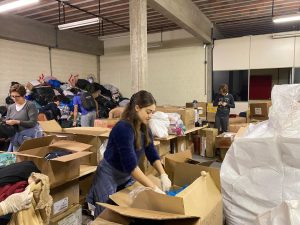By Alícia
 During my time interning at the English National Ballet School Professional Trainee Program in London, I was fortunate to experience moments that can only be described as truly magical. From partaking in classes led by esteemed figures of the ballet world to witnessing the sublime performances of my idol, Marianela Núñez, grace the illustrious stage of the Royal Opera House, to working with some of the most visionary English choreographers of our time—Arthur Pita, James Pett, and Travis Clausen-Knight, every aspect of my time there seemed to be imbued with an enchanting aura. To top it all off, receiving an invitation from Viviana Durante herself, former British Principal Ballerina and current director of ENBS, to join the program for the following season was a dream come true.
During my time interning at the English National Ballet School Professional Trainee Program in London, I was fortunate to experience moments that can only be described as truly magical. From partaking in classes led by esteemed figures of the ballet world to witnessing the sublime performances of my idol, Marianela Núñez, grace the illustrious stage of the Royal Opera House, to working with some of the most visionary English choreographers of our time—Arthur Pita, James Pett, and Travis Clausen-Knight, every aspect of my time there seemed to be imbued with an enchanting aura. To top it all off, receiving an invitation from Viviana Durante herself, former British Principal Ballerina and current director of ENBS, to join the program for the following season was a dream come true.
 However, amidst these extraordinary opportunities, I also faced a fair share of anxiety and fear. By May, I was already feeling exhausted, having worked incessantly since the beginning of January and endured months of grueling audition processes and constant evaluation. Rejections, frustrations, and the pressure of being under constant scrutiny can weigh heavily on any dancer. And being far away from home, family, and familiarity only added to the strain. Unlike my time in Germany, where I was surrounded by fellow interns, in London, I felt like an outsider—unfamiliar with the class locations, schedule, attire, rehearsal routines, choreography styles, and not knowing anyone. The awareness that my stay would be brief, just one month, made it challenging to fully acclimate or form lasting friendships.
However, amidst these extraordinary opportunities, I also faced a fair share of anxiety and fear. By May, I was already feeling exhausted, having worked incessantly since the beginning of January and endured months of grueling audition processes and constant evaluation. Rejections, frustrations, and the pressure of being under constant scrutiny can weigh heavily on any dancer. And being far away from home, family, and familiarity only added to the strain. Unlike my time in Germany, where I was surrounded by fellow interns, in London, I felt like an outsider—unfamiliar with the class locations, schedule, attire, rehearsal routines, choreography styles, and not knowing anyone. The awareness that my stay would be brief, just one month, made it challenging to fully acclimate or form lasting friendships.
 Yet, amidst the challenges, what truly astonished me was the overwhelmingly positive environment and the attitude of my fellow dancers. In an industry often fraught with toxicity and cutthroat competition, I braced myself for the worst. However, from the moment I stepped into the studio, I was met with warmth and kindness. Each day, my classmates extended friendly greetings, inquired about my background and plans for the future, offered assistance in finding my way through the program and studios, and even ensured I felt safe when walking home alone after class. Their genuine concern for my well-being, willingness to share schedules, lend materials, capture memories through photographs, and invitations to join them on coffee runs and weekend picnics made me feel not only welcomed but truly valued. These seemingly insignificant acts of kindness–a shared laugh, cheering me on when a pirouette worked, and saying reassuring words before an important rehearsal, not only eased my nerves but also allowed me to immerse myself fully in the experience, replacing the pressures of auditions and evaluations with a sense of belonging and acceptance.
Yet, amidst the challenges, what truly astonished me was the overwhelmingly positive environment and the attitude of my fellow dancers. In an industry often fraught with toxicity and cutthroat competition, I braced myself for the worst. However, from the moment I stepped into the studio, I was met with warmth and kindness. Each day, my classmates extended friendly greetings, inquired about my background and plans for the future, offered assistance in finding my way through the program and studios, and even ensured I felt safe when walking home alone after class. Their genuine concern for my well-being, willingness to share schedules, lend materials, capture memories through photographs, and invitations to join them on coffee runs and weekend picnics made me feel not only welcomed but truly valued. These seemingly insignificant acts of kindness–a shared laugh, cheering me on when a pirouette worked, and saying reassuring words before an important rehearsal, not only eased my nerves but also allowed me to immerse myself fully in the experience, replacing the pressures of auditions and evaluations with a sense of belonging and acceptance.
I realized that the ballet environment doesn’t have to be toxic or relentlessly competitive. Here, everyone was genuinely happier because they were true friends, celebrating each other’s successes and offering comfort during tough times. I remember thinking that I would leave with lasting friendships—people I would stay in touch with and follow on social media, eager to celebrate their achievements for years to come.
 And then, just a week before my anticipated return home, my beloved home state of Rio Grande do Sul was struck by the most severe climatic catastrophe in its history (Photo: Lauro Alves / disclosure Government of RS). Torrential rains engulfed entire cities, ravaging the very stadium where I had passionately cheered at countless soccer matches and erasing what was once the serene waterfront boardwalk home to, in my eyes, the most beautiful sunset in the world. Over 3,400 kilometers submerged, with a staggering 618,000 individuals displaced and a tragic toll of over 100 lives lost (as of May 16, 2024), leaving behind a path of destruction akin to Hurricane Katrina. Families I knew were suddenly forced to flee their homes, leaving behind everything they owned, with nothing but the clothes on their backs. With water treatment and power stations incapacitated, vast swaths of the city endured weeks without access to clean water or electricity, leading to the closure of schools and businesses. The airport lay submerged and non-operational indefinitely, with countless flights, including mine, canceled, while roads between cities were rendered impassable due to landslides. Social media and news outlets were inundated with heart-wrenching images: newborns being rescued from the debris of collapsed homes, desperate dogs fighting against the relentless currents, and a lone horse stranded atop a submerged rooftop. Moments like these put everything into perspective, as the daily perils of everyday life seem so minuscule, and we come to cherish the simple comforts of having a roof over our heads, food on the table, a warm bed to rest in, and the reassuring presence of our loved ones.
And then, just a week before my anticipated return home, my beloved home state of Rio Grande do Sul was struck by the most severe climatic catastrophe in its history (Photo: Lauro Alves / disclosure Government of RS). Torrential rains engulfed entire cities, ravaging the very stadium where I had passionately cheered at countless soccer matches and erasing what was once the serene waterfront boardwalk home to, in my eyes, the most beautiful sunset in the world. Over 3,400 kilometers submerged, with a staggering 618,000 individuals displaced and a tragic toll of over 100 lives lost (as of May 16, 2024), leaving behind a path of destruction akin to Hurricane Katrina. Families I knew were suddenly forced to flee their homes, leaving behind everything they owned, with nothing but the clothes on their backs. With water treatment and power stations incapacitated, vast swaths of the city endured weeks without access to clean water or electricity, leading to the closure of schools and businesses. The airport lay submerged and non-operational indefinitely, with countless flights, including mine, canceled, while roads between cities were rendered impassable due to landslides. Social media and news outlets were inundated with heart-wrenching images: newborns being rescued from the debris of collapsed homes, desperate dogs fighting against the relentless currents, and a lone horse stranded atop a submerged rooftop. Moments like these put everything into perspective, as the daily perils of everyday life seem so minuscule, and we come to cherish the simple comforts of having a roof over our heads, food on the table, a warm bed to rest in, and the reassuring presence of our loved ones.
 Yet, amidst the widespread devastation, exacerbated by governmental neglect in maintaining crucial flood control infrastructure coupled with rampant corruption, the people did not wait for state intervention to take action. In a remarkable display of the indomitable human spirit, individuals united to save one another, extending helping hands and demonstrating unprecedented levels of compassion and solidarity. Across social media platforms, every account and story was dedicated to sharing information on how to contribute to NGOs aiding in flood relief efforts. Neighbors risked their lives in small boats on treacherous waters to rescue distressed people and animals. Nearly everyone I knew contributed in some way, whether through monetary donations, offering clothing, shoes, and toys, or volunteering at shelters for both humans and animals alike. Those of us who were distant, including myself and my former colleagues studying abroad, faced a profound sense of powerlessness, unable to provide immediate assistance, but leveraged digital avenues such as PIX and mobilized our platforms to spread awareness of the catastrophes unfolding in Brazil to the people around us. Friends from around the world reached out to me, eager to offer assistance, and international initiatives were swiftly mobilized as news of the disaster spread. Businesses across Brazil redirected their profits to support relief efforts. At the same time, countless individuals and companies launched fundraising campaigns to gather essential resources, food, and water, often airlifted by helicopters to the most inaccessible areas. Celebrities utilized their platforms to amplify calls for aid, while philanthropists established foundations dedicated to addressing the long-term ramifications of the flooding.
Yet, amidst the widespread devastation, exacerbated by governmental neglect in maintaining crucial flood control infrastructure coupled with rampant corruption, the people did not wait for state intervention to take action. In a remarkable display of the indomitable human spirit, individuals united to save one another, extending helping hands and demonstrating unprecedented levels of compassion and solidarity. Across social media platforms, every account and story was dedicated to sharing information on how to contribute to NGOs aiding in flood relief efforts. Neighbors risked their lives in small boats on treacherous waters to rescue distressed people and animals. Nearly everyone I knew contributed in some way, whether through monetary donations, offering clothing, shoes, and toys, or volunteering at shelters for both humans and animals alike. Those of us who were distant, including myself and my former colleagues studying abroad, faced a profound sense of powerlessness, unable to provide immediate assistance, but leveraged digital avenues such as PIX and mobilized our platforms to spread awareness of the catastrophes unfolding in Brazil to the people around us. Friends from around the world reached out to me, eager to offer assistance, and international initiatives were swiftly mobilized as news of the disaster spread. Businesses across Brazil redirected their profits to support relief efforts. At the same time, countless individuals and companies launched fundraising campaigns to gather essential resources, food, and water, often airlifted by helicopters to the most inaccessible areas. Celebrities utilized their platforms to amplify calls for aid, while philanthropists established foundations dedicated to addressing the long-term ramifications of the flooding.
 The path to rebuilding Rio Grande do Sul stretches ahead, seemingly endless. Yet, even in the darkest days, humanity’s resilience and capacity for empathy shine as guiding beacons of hope. From the simplest acts of kindness—a smile, gathering essentials for those in need, volunteering time, or preparing meals for shelters—each gesture, no matter how small, has the power to transform lives devastated by loss. While my experience of feeling lost and out of place in a foreign country pales in comparison to the despair of losing one’s home or a loved one, both remind us of the transformative power of kindness and solidarity. They demonstrate that even the smallest acts—a single donation, a moment of compassion, extending your hand to help those lost—can make an immense difference. These moments of collective kindness give me hope in humanity as they slowly but surely help individuals find their way and feel a little more at home amidst the chaos and loss.
The path to rebuilding Rio Grande do Sul stretches ahead, seemingly endless. Yet, even in the darkest days, humanity’s resilience and capacity for empathy shine as guiding beacons of hope. From the simplest acts of kindness—a smile, gathering essentials for those in need, volunteering time, or preparing meals for shelters—each gesture, no matter how small, has the power to transform lives devastated by loss. While my experience of feeling lost and out of place in a foreign country pales in comparison to the despair of losing one’s home or a loved one, both remind us of the transformative power of kindness and solidarity. They demonstrate that even the smallest acts—a single donation, a moment of compassion, extending your hand to help those lost—can make an immense difference. These moments of collective kindness give me hope in humanity as they slowly but surely help individuals find their way and feel a little more at home amidst the chaos and loss.
